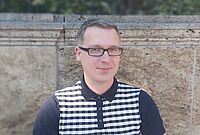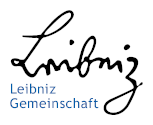- Das Institut
- Forschung
- Diktaturen im 20. Jahrhundert
- Demokratien und ihr historisches Selbstverständnis
- Transformationen in der neuesten Zeitgeschichte
- Internationale und transnationale Beziehungen
- Editionen
- Dissertationsprojekte
- Abgeschlossene Projekte
- Dokumentation Obersalzberg
- Zentrum für Holocaust-Studien
- Berliner Kolleg Kalter Krieg
- Publikationen
- Vierteljahrshefte
- Archiv
- Bibliothek
- Zentrum für Holocaust-Studien
- Aktuelles
- Termine
- Presse
- Neuerscheinungen
- Aus dem Institut
- Themen
- Spielfilm im Nationalsozialismus
- Reordering Yugoslavia, Rethinking Europe
- 75 Jahre Institut für Zeitgeschichte
- München 1972
- Confronting Decline
- Digitale Zeitgeschichte
- Zeitgeschichte Open
- Das Deutsche Verkehrswesen
- Bundeskanzleramt
- Demokratische Kultur und NS-Vergangenheit
- Geschichte der Treuhandanstalt
- Akten zur Auswärtigen Politik
- Dokumentation Obersalzberg
- Edition "Mein Kampf"
- "Man hört, man spricht"
- Newsletter
- IfZ
- Das Institut
- Gastwissenschaftler/innen
Gastwissenschaftler/innen am IfZ
Das Institut beherbergt stets auch Gastwissenschaftlerinnen und Gastwissenschaftler aus dem In- und Ausland, die die renommierte Infrastruktur des Instituts nutzen und ihre Projekte zur Diskussion stellen. Neben den Fellowships des Berliner Kollegs Kalter Krieg sowie den Fellowships des Zentrums für Holocaust-Studien am IfZ und den EHRI-Fellowships ermöglicht auch ein DAAD-Fellowship einen Aufenthalt am IfZ im Rahmen der Leibniz-Gemeinschaft. Darüber hinaus begrüßt das IfZ seit 2019 Historikerinnen und Historiker der University of Cambridge, die im Rahmen des bilateralen Fellowship-Programms mit dem DAAD Cambridge Research Hub for German Studies vier Wochen am Institut verbringen.
Zusätzlich wird ein ganzjähriges Forschungsstipendium des Instituts für Zeitgeschichte vergeben, das am Historischen Kolleg angesiedelt ist. Mehr Informationen hierzu auf der Seite des Historischen Kollegs.
Gastwissenschaftler/innen 2024

Carl Pierer is a PhD candidate at the Department of Politics and International Studies at the University of Cambridge. His research focuses on the question of how ecological crises, such as climate change and biodiversity loss, challenge our understanding of politics. In his PhD, he is exploring the ways in which the political in the Anthropocene can be reconfigured through the concept of labour. To this end, he is working on an environmental history of political thought around the problem of labour. Relatedly, Marxist feminist critiques of (productive) labour and efforts to valorise undervalued and hidden (reproductive) labour are of particular interest to him. He holds an MA in Philosophy from the Ecole Normale Supérieure Paris – PSL and a MA (Hons) in Mathematics from the University of Edinburgh. Research Interests: Environmental (Histories of) Political Thought, Feminism, Marxism, Critical Theory, Alienation.
The stay is part of the institute’s cooperation with the DAAD Cambridge Research Hub for German Studies.

Oliver Puckey is a fourth-year PhD student in Modern European History at the University of Cambridge. His PhD project investigates the Anglo-German cultural relationship during the first half of the nineteenth-century, looking especially at the reception of German music and opera in Victorian Britain. His project situates the movement of German music and musicians to Britain within wider networks of cultural exchange that were developing between Britain and the continent in this period, asking, in turn, how the persistent idea of Germany as the 'land of music' took shape in wider European contexts. In Munich, Oliver will continue to write-up his doctoral research while also conducting preliminary research for a planned postdoctoral project.
The stay is part of the institute’s cooperation with the DAAD Cambridge Research Hub for German Studies.

Sara-Jane Vigneault is a Ph.D. candidate in History at the University of Cambridge under the supervision of Prof. Arthur Asseraf. Supported by the Open-Oxford-Cambridge AHRC and the Cambridge Trust scholarships, her doctoral project analyses intimate contact between French colonised men and European civilians in France and Germany from the First World War until the end of the Second World War. The presence of racialised soldiers on European soil offered unprecedented possibilities to cross the intimate frontiers of the empire. In response, French authorities sought what Vigneault calls ‘containment projects’ through biopolitical governance strategies to control racialised men’s proximity with European women and protect the imperial rule.
The arrival of colonized men and the emergence of new restrictive measures on metropolitan soil provide a microcosm of how social boundaries were conceptualised and disputed in Hexagonal France. But including Germans’ experiences and intimate contact with colonised men in Germany also complicates our understanding of what was considered tolerable and transgressive for French authorities. A transnational approach focusing on the deployment of colonial troops on German territories during the Wars seeks to address how such encounters produced a redefinition of colonial borders in response to which French colonial authorities vacillated between the defence of colonised men on European borders and the maintenance of racial and colonial boundaries on racialised bodies.
Probing the intimacies of the empire through the porous and ambiguous frontiers the wars produced, Vigneault highlights the limits of such ‘containment’ practices found in France and Germany. She maps individual and social bodies as a conceptual space in which bodies encounter, incorporate, and resist dominant discourses and carve a space to voice women’s and soldiers’ experiences and interactions in light of specific constructions of sexuality, race, gender, and class that presupposed white endogamy. She stresses French colonised soldiers’ and European civilians’ agencies and roles – as both agents against and victims of this apparatus. Such an objective repositions them as social actors in the formation of internal and external identification processes in the French Empire and beyond.
The stay is part of the institute’s cooperation with the DAAD Cambridge Research Hub for German Studies.

Yves Müller ist wissenschaftlicher Mitarbeiter am Institut für Landesgeschichte/ Landesamt für Denkmalpflege und Archäologie Sachsen-Anhalt in Halle/Saale. Hier ist er mit dem BMBF-geförderten Projekt „Institutioneller Rassismus in den Sicherheitsbehörden der DDR am Beispiel der Bezirke Magdeburg und Halle, 1949 – 1989/90“ (IRiS) befasst. Er hat an der Universität Hamburg zur nationalsozialistischen „Sturmabteilung“ (SA) im Zweiten Weltkrieg promoviert und ist u. a. Mitbegründer des Zeithistorischen Arbeitskreises Extreme Rechte (ZAER). Forschungs- und Arbeitsschwerpunkte umfassen politische Gewalt in der Weimarer Republik, Männlichkeiten im Nationalsozialismus, extreme Rechte in der Bundesrepublik Deutschland, Erinnerungskultur und -politik in der DDR und Polizeigeschichte.
Im Rahmen des Leibniz-Fellowships „Value of the Past“ hält sich Yves Müller im April 2024 am Institut für Zeitgeschichte München-Berlin auf. Unter dem Titel „Der Anti-Nazi. Kurt Hirsch (1913–1999) und die Bewältigung der Gegenwart“ wird er einen Beitrag zur deutschen Zeitgeschichte leisten. Thematisch bewegt sich das avisierte Projekt im Grenzbereich zwischen der Nachgeschichte des Holocaust und der Geschichte von Holocaust Survivors sowie als Vorgeschichte der Gegenwart im Bereich der bundesrepublikanischen Zeit- und Demokratiegeschichte. Darüber hinaus bieten sich auch Anknüpfungspunkte in der zeithistorischen Rechtsextremismusforschung sowie der Kommunismusforschung.
Weitere Informationen: https://archlsa.de/iris.html & https://www.geschichte.uni-hamburg.de/forschung/doktoranden/mueller-yves.html
Kontakt: ymueller[at]lda.stk. sachsen-anhalt.de
Ehemalige Gastwissenschaftler/innen
Im Folgenden finden Sie einen Überblick über die Gastwissenschaftlerinnen und Gastwissenschaftler, die in den letzten Jahren am Institut für Zeitgeschichte gearbeitet haben:
- Gastwissenschaftlerinnen und Gastwissenschaftler 2023
- Gastwissenschaftlerinnen und Gastwissenschaftler 2022
- Gastwissenschaftlerinnen und Gastwissenschaftler 2021
- Gastwissenschaftlerinnen und Gastwissenschaftler 2020
- Gastwissenschaftlerinnen und Gastwissenschaftler 2019
- Gastwissenschaftlerinnen und Gastwissenschaftler 2018
- Gastwissenschaftlerinnen und Gastwissenschaftler 2017
- Gastwissenschaftlerinnen und Gastwissenschaftler 2016
- Gastwissenschaftlerinnen und Gastwissenschaftler 2015
- Gastwissenschaftlerinnen und Gastwissenschaftler 2014





